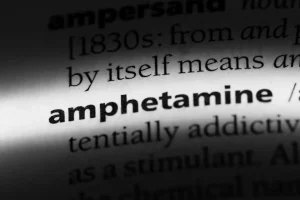
We publish material that is researched, cited, edited and reviewed by licensed medical professionals. The information we provide is not intended to be a substitute for professional medical advice, diagnosis or treatment. It should not be used in place of the advice of your physician or other qualified healthcare providers. The duration for which benzodiazepines can be detected in the body depends on several factors.
- Amphetamine is a type of stimulant drug often used in treating attention deficit hyperactivity disorder (ADHD) and narcolepsy.
- According to the American College of Neuropsychopharmacology, the average amphetamine half life is hours.
- Bingeing practices greatly increase the length of time amphetamines stay in the system as the body’s cells and tissues keep storing up residue materials along the way.
- Any outside use of a prescription is considered illegal in the United States.
What other tests might I have along with this test?
Call your doctor if you have any unusual problems while taking this medication. It is important to use an oral syringe (measuring device) to how long do amphetamines stay in your system accurately measure and take your dose of the extended-release suspension. Do not sell, give away, or let anyone else take your medication.
Call us Today for Addiction Advice

Stimulants increase the activity of your central nervous system or the part of your brain that sends messages to nerves to tell them how to complete their jobs. Discover if drug addiction is a disease and explore different treatment options in this guide from The Recovery Team. When taken, amphetamines increase the release of certain neurotransmitters in the brain, particularly dopamine and norepinephrine. This action leads to heightened alertness, increased concentration, elevated mood, and a sense of increased energy.

What are the mild side effects of Adderall?
- On the other hand, if you do more exercises and speed up your system, many metabolisable substances will disappear quicker than average.
- Experts report that some people may benefit from antidepressant medications as they complete the withdrawal process.
- In addition, seeking support from doctors, medical professionals, therapists, or support groups can be beneficial during withdrawal.
Amphetamine-dextroamphetamine is a stimulant-type medicine used to treat ADHD and narcolepsy. Its use is limited by its addiction potential and risk of abuse. The half-life is not the only predictor of how long it will take Adderall to leave the body. In a person who has been taking Adderall for a long time, the drug may take longer to leave the body. Furthermore, if a person takes a second dose, the half-life resets. The half-life of a drug is the average amount of time that it takes for the body to eliminate half of the initial dose from the system.
As a Schedule II controlled substance, the U.S. government has determined that Dexedrine has a high potential for abuse. Abusing Dexedrine, according to the federal government, can lead to severe physical and psychological dependence. Even with risk of abuse, Dexedrine is still used as a medical treatment. Dextroamphetamine is a generic drug, also available under the brand name medication called Dexedrine.
- Oral fluid tests can detect amphetamines from 24 to 48 hours after intake.
- Doctors prescribe them to help people with conditions such as attention-deficit/hyperactivity disorder and narcolepsy.
- Methamphetamine changes the dopamine in a person’s brain, so they feel energized, happy and alert.
- We understand the urgency of addiction and offer a rapid admission process, often admitting clients within 24 hours.
- However, certain opioids like methadone can be detected for longer periods, up to 7-10 days.

Professional resources
- Providers will monitor how your body reacts to amphetamines to see if they alleviate your symptoms and prevent side effects, especially addiction.
- Medical facilities and some treatment centres will also need to have a constant observation of their patients’ substance use.



